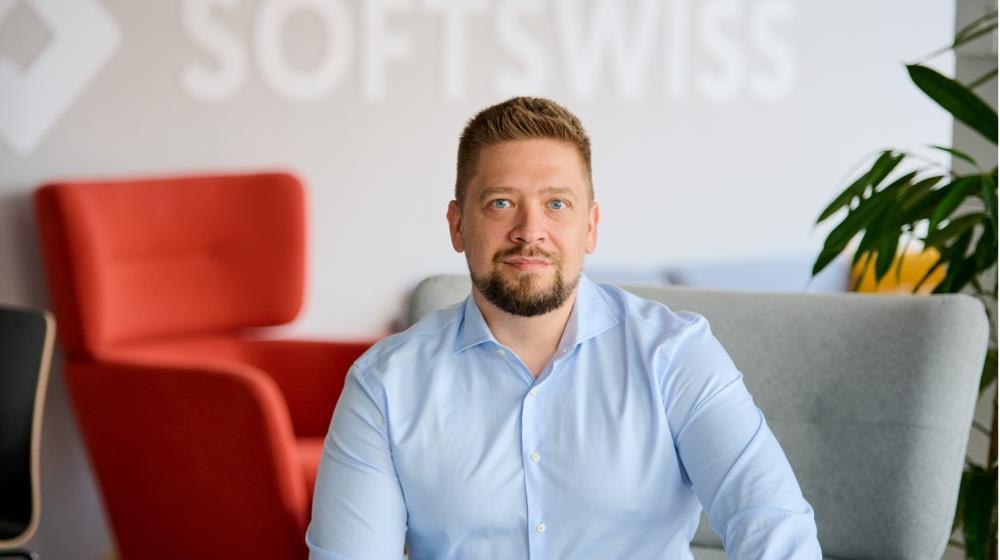With AI rapidly transforming the business and technology landscape, a growing question arises: whose roles are most at risk — frontline teams or the C-suite?
Some argue it’s not the employees who will be replaced, but the executives — as AI systems become better at processing data, weighing context, and making strategic decisions.
We spoke with Sergey Kastukevich, Deputy CTO at SOFTSWISS, the global tech company, to explore what it really means to lead a tech organisation in the age of AI — and how this shift is already influencing his work as a senior executive.
What’s the role of a modern tech leader today, and has AI already impacted your work as a senior executive?
Absolutely, the impact has been significant.
First, I’m constantly learning. I completed a specialised AI course at Oxford – it helped me approach the subject systematically and stay in the loop, rather than just relying on the team.
I’ve always trusted my engineers, but I also believe it’s important to speak the same language to understand the issues they’re raising, the solutions they’re proposing and not hold up the process. That requires ongoing self-education on my part.
Secondly, I’ve realised that my role as a leader today is to be even more proactive in supporting tech initiatives. Things are evolving far too quickly. What used to be an annual release cycle now demands action every few weeks.
New tools and ideas are always coming in. To stay ahead, engineers need the freedom to try things out, the support to do it well, and, most of all, trust. It’s my responsibility to create that kind of environment.
Finally, on the business side, I do my best to communicate the importance of technology to the board and act as an internal advocate for AI. It’s not always straightforward, but it’s a crucial part of my role: inspiring interest and helping people understand why the speed of adoption really matters.
How would you describe your leadership style within a truly tech-driven global company like SOFTSWISS?
As a tech leader, I don’t need to be on the frontline of every cutting-edge solution – that’s not my role. My job is to trust my team, rely on experts, and build a culture of servant leadership. That means creating an environment where people can grow and offer the most effective technical solutions.
I’m not the source of ideas – I’m the enabler and amplifier. I see myself more as a coach and partner, not a manager imposing opinions.
Of course, I can influence the strategic direction and define the framework across both infrastructure and product development.
What’s important to me is that teams are aligned with business and product logic, and that they’re solving real, valuable problems.
I actively support internal initiatives, encourage the team to speak at conferences, explore new tech, and bring forward ideas. When they want to implement a solution, I help: I find resources, secure budgets, and explain the business case to senior leadership.
Take Data Governance, for example. To the business, it can just look like overhead. That’s when I turn it into practical cases: how it improves reporting, accelerates processes, and raises data quality.
I bring in key stakeholders and build internal support, so it’s no longer ‘just an IT project’, but a company-wide goal.
My philosophy is simple: don’t tell people what to do – create the space where the team can find the best solutions on their own.
A great example is artificial intelligence implementation. We’re moving fast in this direction, and I’m doing everything I can to support that pace: getting the right licences, subscriptions, negotiating with vendors like Oracle to give us the environments we need. All of it to make sure we’re ahead of the curve. And I genuinely believe we’re leading the way in AI adoption in iGaming right now, and I want to keep it that way.
So when the team makes a request, I do everything I can to make it happen quickly.
That’s my leadership style: I create the kind of environment where top engineers want to work because they have the freedom, tools, support, and trust to do their best work.
What does innovation actually mean to you when it comes to working with your development teams?
Everything is cyclical. Take artificial intelligence.
In the 1980s, we saw real breakthroughs, but interest faded. In the 1990s, there was hardly any progress – we simply didn’t have the computing power.
Back then, AI was trendy, but it wasn’t practical.
Only now, with the rise of modern GPUs, transformers, LLMs, and neural networks like ChatGPT, has the topic become truly relevant again.
We’ve finally reached the computing level where these models actually work and that’s triggered a new wave of innovation.
So, what does innovation mean to me? It’s not about chasing what’s new for the sake of it.
It’s about using the right technology at the right time – at the right context – guided by trends and real-world needs.
If you see other teams accelerating thanks to AI-powered coding and automation, you can’t just ignore it. Because you might still be delivering quality but it’ll take you ten times longer. And your product won’t make it to market in time. You’ll get left behind.
Our job is to stay ahead of the curve.
That’s why we use a Tech Radar – a practical tool where we track technologies across different stages: what we’re curious about, what we’re testing (PoCs), what we’re rolling out, and what we’ve decided to reject. It’s a living process that helps the team stay clear on what to use now and what to park for later.
To me, innovation is about being open to the new – staying aware of trends, thinking them through, and integrating them into workflows.
It’s about not getting stuck in how things ‘used to be done’, but constantly rethinking how to work faster and better.









